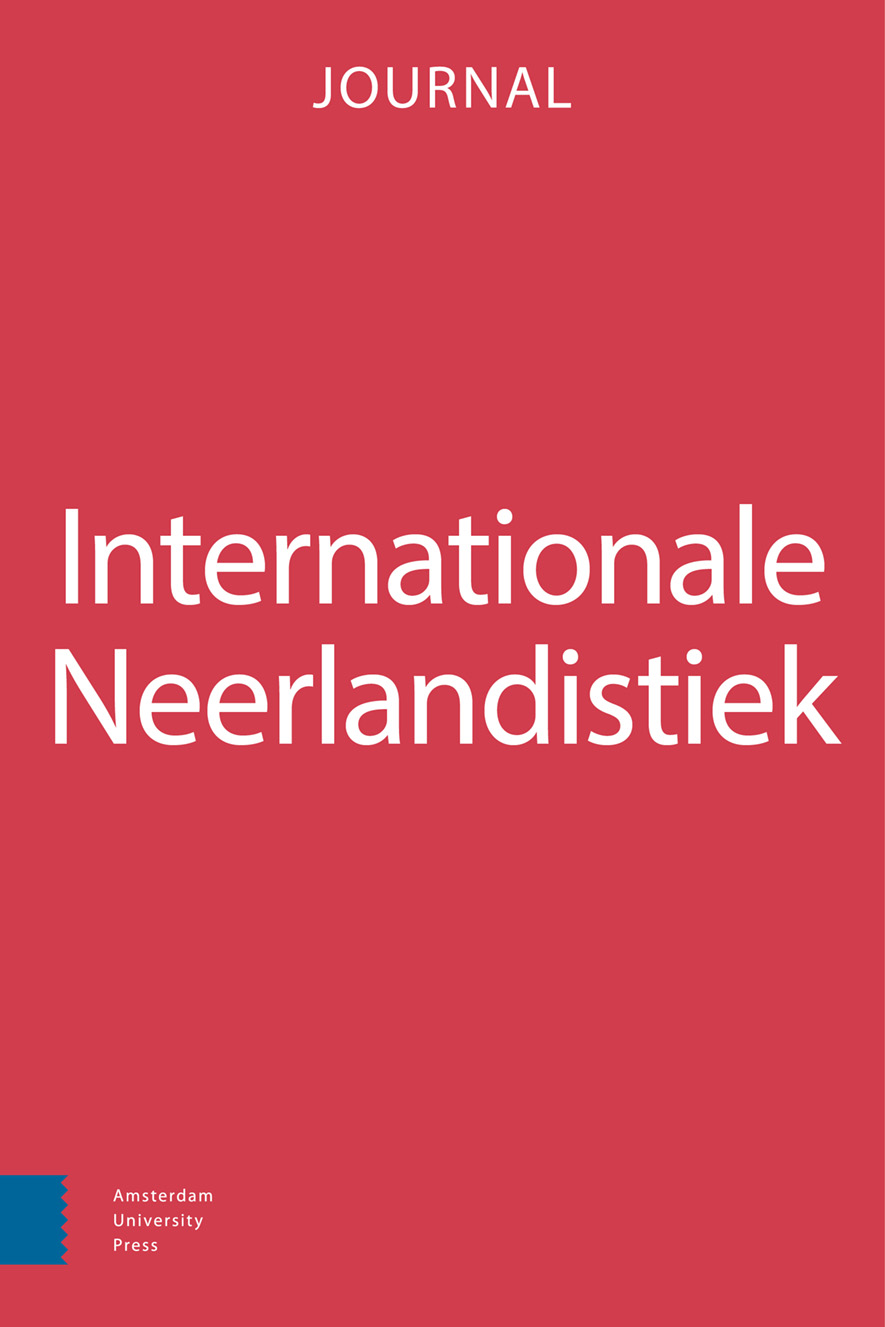-
oa Heterolinguale humor in Fikry El Azzouzi’s trilogie Ayoub
- Amsterdam University Press
- Source: Internationale Neerlandistiek, Volume 61, Issue 1, May 2023, p. 1 - 18
-
- 01 May 2023
- Previous Article
- Table of Contents
- Next Article
Abstract
The trilogy Ayoub (2018) by the Flemish-Moroccan writer Fikry El Azzouzi consists of Het schapenfeest (2010), Drarrie in de nacht (2014) and Alleen zij (2016). These intercultural novels are characterized by the presence of humor and the use of street slang, interlaced with Arabic and Tamazight. This literary multilingualism or ‘heterolingualism’ (Grutman, 1997/2019) can be ‘manifest’ (immediately perceptible) or ‘latent’ (subtly present under a seemingly unilingual surface) (Radaelli, 2011; Suchet, 2014; Blum-Barth, 2021). The correlation between humor and heterolingualism will be analyzed based on text fragments that both contain heterolingual elements and produce a comical effect. How do manifest and latent heterolingual elements influence the humoristic effect of relevant text passages? My hypothesis is that the heterolingual elements enhance the contrast between the Arabic-Islamic and the Flemish-catholic traditions on a lexical level. At the same time, this contrast is put into perspective on a semantic-interpretative level through the comical incongruity created by the aforementioned lexical contrast. This putting cultural differences into perspective also applies to latent heterolingual humor, although the lexical contrast doesn’t play a part in this. As the other language is only perceptible to an in-group, latent heterolingual humor is both inclusive and exclusive: the creation of an in-joke excludes the out-group and thus generates feelings of superiority to members of the in-group.


